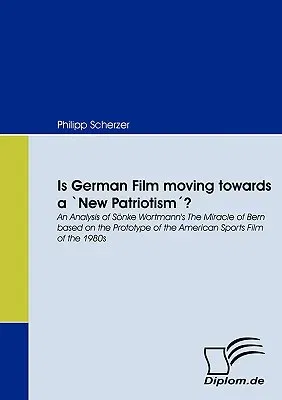The 4th of July 1954 marks a crucial event in German history. With a 3:2
victory over a Hungarian team that had not been beaten for four whole
years West Germany had won the F.I.F.A. World Cup for the first time.
Helmut Rahn's winning goal instantly revived the spirit of an entire
country that not even a decade before had experienced huge devastation
in the Second World War and a general sentiment that 'we are somebody
again' began to overlie the whole population. This triumph went on to be
remembered as the 'Miracle of Bern'. In 2003, German director Sönke
Wortmann, in collaboration with the German Football Association
(D.F.B.), was the first to attempt a full reconstruction of this event
in the extent of a feature film. While there had been a certain fear
that Wortmann might destroy what had already become a myth in the minds
of many Germans, he himself believed that the film was necessary in
order to keep the legend alive for a younger generation, who had no
direct connection to or never even heard of this renowned event. In the
end, Wortmann's film The Miracle of Bern drew more than three million
people to the box office, thus making it one of the most successful
films of 2003 over the whole of Europe, even though some journalists
sharply criticized it as being the 'most American German film of all
time'. In their opinion, Wortmann's predominant concern was to emphasize
the mythical character of West Germany's sporting triumph. This was
something that had never been attempted before in German cinema, but of
which there are plenty examples in what might be called the 'classic'
American sports film of the 1980s. In this regard, however, most reviews
remain rather vague. Therefore, this study is aimed to provide a closer
analysis of the subject matter, concentrating on the comparison of The
Miracle of Bern to three successful 1980s' U.S. sports films, namely
Field of Dreams (1989), The Natural (1984) and Hoosiers (1986).
Furthermore I would like to suggest possib


